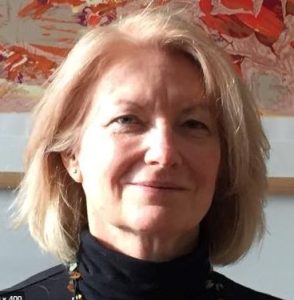Back in 2004 Gulikers, Bastiaens, and Kirschner defined authentic assessment as: “An assessment requiring students to use the same competencies, or combinations of knowledge, skills, and attitudes that they need to apply in the criterion situation in professional life.” Despite ongoing enthusiasm for the approach beyond Sally Brown and Kay Sambell’s Covid-19 Assessment Collection good examples remain hard to find. The Digital Assessment Team would like to share an excellent case study of an authentic assessment approach taken on the UCL Clinical Exercise and Physical Activity Master’s module. On this module students are asked to apply knowledge by creating an online case specific patient resource. The resource is created in Microsoft Sway and includes images, videos and text.
In the video and case study below Dr Jane Simmonds, Programme Lead for MSc/ PGDip/ PGCert Advanced Paediatric Physiotherapy and Paediatric Physiotherapy Studies within the UCL Great Ormond Street Institute of Child Health, explains the authentic approach taken on her clinical exercise and physical activity module.
What we did and why
 Dr Jane Simmonds explains: The clinical exercise and physical activity module looks at global challenges including mental health and obesity. It used to be assessed using an exam but we felt that this did not give students the opportunity to fully apply their knowledge. The assessment was changed to allow students to create a bespoke educational resource for patients that is also linked to a case study that has originated in clinical practice. The resource is created by the students in MS Sway. Students must collate information and multimedia files and embed them within the Sway in an engaging manner. To support the resource the students also produce an essay which covers how they could potentially get people to engage with the resource they have created.
Dr Jane Simmonds explains: The clinical exercise and physical activity module looks at global challenges including mental health and obesity. It used to be assessed using an exam but we felt that this did not give students the opportunity to fully apply their knowledge. The assessment was changed to allow students to create a bespoke educational resource for patients that is also linked to a case study that has originated in clinical practice. The resource is created by the students in MS Sway. Students must collate information and multimedia files and embed them within the Sway in an engaging manner. To support the resource the students also produce an essay which covers how they could potentially get people to engage with the resource they have created.
The assessment change was in response to a need to allow the students to apply their knowledge in a more demonstrable and concrete manner. We wanted to make sure the assessment was authentic and a practical application of what the students had learnt. The assessment changed three years ago but continues to be developed over time. This was quite a resource intensive assessment to set up but once created the idea can be reuse each year. It is by definition a ‘non-disposable assessment’ in that it provides impact or value outside of the traditional student-teacher dyad.
We are unaware of anyone else using Sway on their modules but would be keen to hear from anyone who is. The students really enjoy this assessment and have remarked that it is one of the most transformative modules they have taken. We hope to bring in new and topical conditions to the module to ensure the content is fresh.
Jane’s top 5 tips for academics wanting to do something similar:
- If you want to use Sway make sure you have a go yourself
- Build in time in your module to run through the tool
- Support your students with their digital capabilities
- Provide students with a template so they know what needs to be included
- Look for new topical themes for use each year
If you are interested in authentic assessment several related sessions were delivered at the UCL Education conference held in April 2022:
- Authentic assessment – holy grail or just a fad?– by Simon Walker
- Authentic master’s dissertations through student-community partnerships – by Anne Laybourne
- An institutional approach to align assessment and learning design – by Clive Young and Simon Walker
- Designing Authentic Assessment – by Richard Osborne
A version of the Authentic Assessment workshop devised by Ricard Osborne will take place on 22 November 2022, 12:00 pm–1:00 pm at the UCL Arena Centre. The session with be co-facilitated by Richard Osborne and Digital Assessment Advisor (DAA) Eliot Hoving. You can book to attend the session from the Arena Centre training site.
Resources
- Gulikers, J., Bastiaens, T., & Kirschner, P. (2004). A five-dimensional framework for authentic assessment.
Educational Technology Research and Development, 52 (3), 67-85